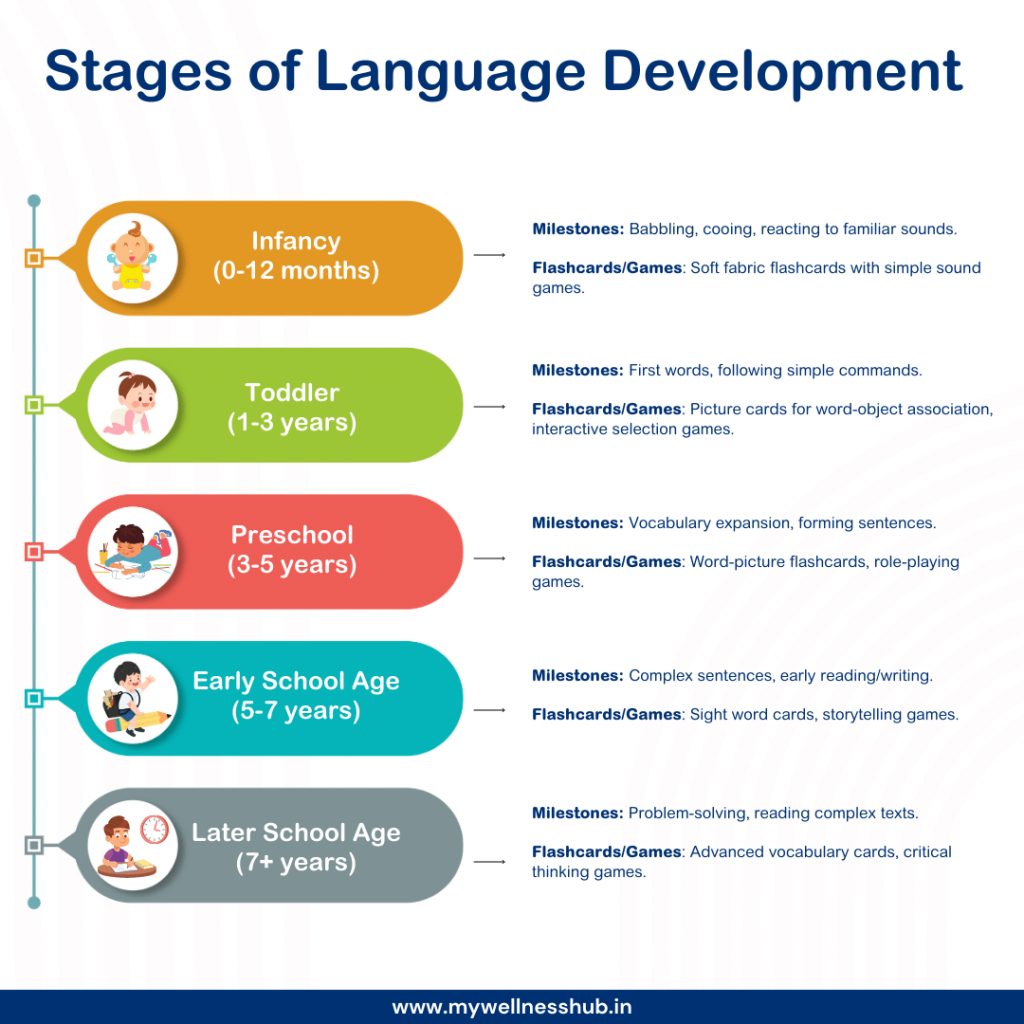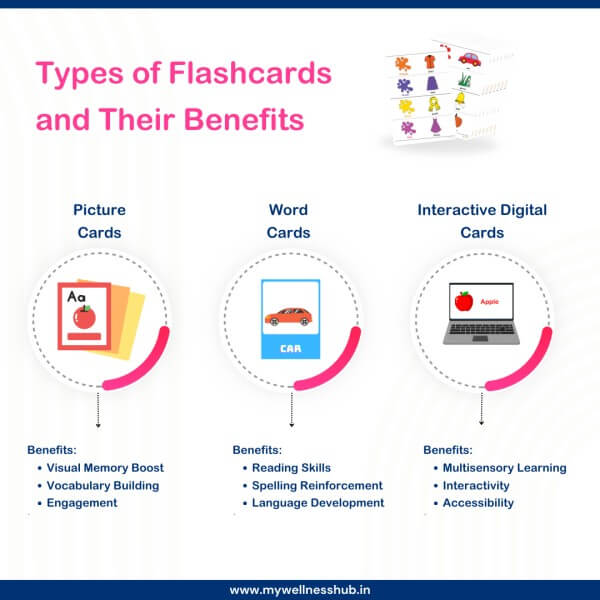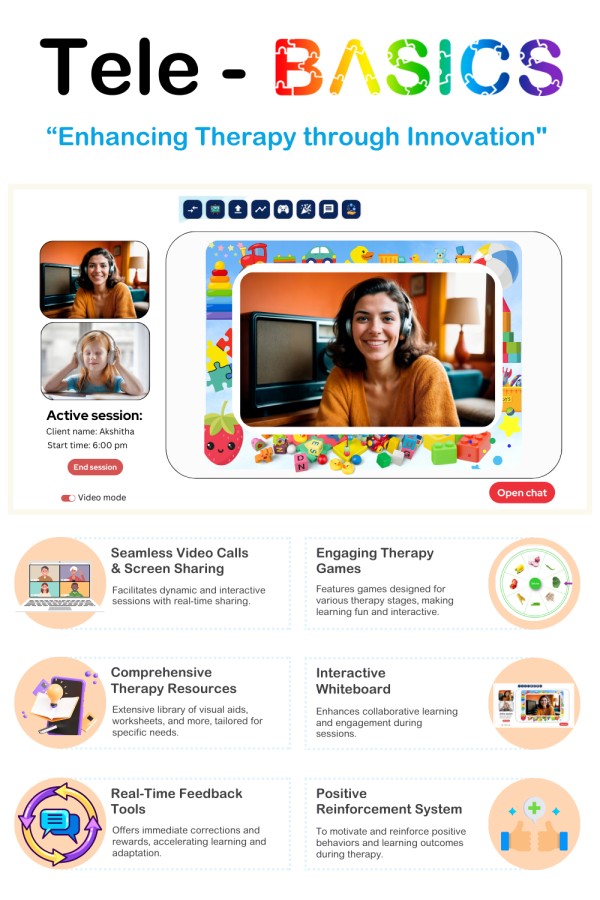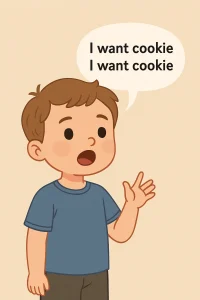How Flashcards and First Words Games Aid Language Acquisition
By Akash Sinha
Last Updated: September 14, 2024
Importance of Early Language Acquisition
Language development is a crucial aspect of early childhood growth, profoundly impacting cognitive development and social skills. For children, particularly those undergoing therapy, mastering language can significantly influence their academic success and personal confidence. Engaging tools like flashcards and first words games play an essential role in this developmental phase, offering interactive and enjoyable methods to enhance vocabulary and communication skills.

Overview of Flashcards and First Words Games as Educational Tools
Flashcards are not just simple educational tools; they are gateways to a world of words, offering a tactile and visual method of learning that reinforces memory through repetition and association. Similarly, first words games integrate play with learning, making the acquisition of new vocabulary an engaging and enjoyable experience. These tools are particularly beneficial in therapeutic settings, where they can be adapted to suit the unique needs of each child, making them invaluable resources for therapists and parents alike.
Know more about on Top 10 Articulation Flashcards for Enhancing Children’s Speech Skills
Understanding Language Acquisition
Basic Concepts of How Children Learn Language
Language learning in children is a natural process, typically progressing from babbling to full sentence formation. This development is influenced by environmental exposure and interactive communication. Children absorb the nuances of language through repetitive hearing and seeing, which helps them to form associations between objects and their corresponding words.
Role of Repetition and Visual Memory in Language Development
Repetition is a foundational element in language learning. It strengthens neural pathways, making recall quicker and more efficient. Visual memory complements this by allowing children to associate words with images or contexts, a method that is particularly effective when using flashcards. These tools visually represent ideas and objects, embedding words into a child’s vocabulary through repeated exposure and practice.
By incorporating advanced tools like Tele-BASICS from Wellness Hub, which provides an array of interactive resources and games, therapists and parents can create a more dynamic and effective learning environment. These technologies not only support traditional learning methods but also introduce a modern edge to therapy, making sessions more engaging and productive for children with diverse learning needs.
Benefits of Using Flashcards

Enhances Vocabulary Through Repetitive and Visual Learning
Flashcards are a powerful tool for vocabulary building, especially for children who require therapy. They leverage the power of repetition and visual cues to solidify word recognition and recall. Each time a child sees a flashcard, it reinforces the word and its meaning visually, making it easier to remember. This method is particularly effective for children with learning challenges, as it taps into their visual memory, which is often stronger than their auditory memory.
Flashcard Features and Benefits
| Features | Benefits |
|---|---|
| Picture Cards | Enhances visual memory by associating images with words; ideal for early learners to build basic vocabulary. |
| Word Cards | Focuses on text recognition and spelling; suitable for children who can read, helping them to strengthen their vocabulary and syntax skills. |
| Interactive Digital Cards | Offers multimedia learning experiences (audio, animations); engages children through interactive elements, suitable for diverse learning styles, and often includes features for tracking progress. |
Explore more: Toys Flashcards PDF – Free Printable Learning Cards for Kids
Encourages Cognitive Development by Associating Images with Words
Using images to represent words helps children make meaningful connections between the object and its name. This associative learning stimulates cognitive development, enhancing the child’s ability to process information and improving their problem-solving skills. For therapists and parents using platforms like Wellness Hub, incorporating such visual tools can significantly enhance the therapeutic sessions, making them more impactful.
Examples of Effective Flashcard Usage in Different Learning Stages
- Early Learners: For toddlers, flashcards with large, colorful pictures and single words help them associate simple vocabulary with familiar objects.
- Intermediate Learners: For children who have a basic vocabulary, flashcards can be used to introduce more complex words or to start building simple phrases.
- Advanced Learners: Older children can use flashcards for abstract concepts, multiple-meaning words, or problem-solving tasks that require critical thinking.
How Flashcards Can Be Tailored for Individual Learning Needs
Flashcards are highly adaptable. They can be customized with varying levels of complexity based on the child’s individual progress, interests, and learning style. For instance, therapists can use digital flashcards available on platforms like Tele-BASICS, which allow for the inclusion of multimedia elements to cater to children who might benefit from auditory cues along with visual ones.
First Words Games as Learning Tools
Description of First Words Games and How They Complement Flashcard Use
First words games are interactive activities designed to reinforce vocabulary through playful engagement. These games often use the same principles as flashcards but make the experience more dynamic and interactive. For example, a game might involve a child selecting a picture after hearing the word, effectively combining auditory and visual learning, which complements the static nature of flashcards.
Game Types and Language Skills Enhanced
| Game Type | Language Skills Enhanced |
|---|---|
| Matching Games | Enhances vocabulary and visual discrimination skills by requiring players to pair related items or words. |
| Role-play Games | Develops narrative skills, syntax, and pragmatics by encouraging participants to create and act out scenarios. |
| Storytelling Games | Boosts creativity, sequence understanding, and narrative skills as children formulate and tell stories. |
| Memory Games | Improves vocabulary and working memory by requiring the recall of terms and their meanings. |
| Board Games | Encourages strategic thinking and vocabulary development through structured play that often involves language use. |
| Digital Interactive Games | Enhances comprehension and vocabulary through interactive, multimedia content that provides immediate feedback. |
Also Read: How Tele-BASICS Transforms Speech Therapy for Kids with Engaging Tools and Games
Impact on Language Retention and Understanding
Interactive games enhance language retention by involving the child in active use of words in various contexts, which strengthens their understanding and ability to use the language effectively. These games also help in solidifying the connections made through flashcards, providing a dual reinforcement that is crucial for children with learning delays.
Tips for Selecting Appropriate Games Based on Child’s Language Skill Level
- Beginner: Choose games that focus on single words or short phrases to build basic vocabulary.
- Intermediate: Introduce games that require the child to form sentences or use the vocabulary in a functional context.
- Advanced: Opt for games that challenge the child to use the language in complex, real-world situations, such as storytelling or problem-solving.
By integrating tools like Tele-BASICS, therapists can offer a customized and engaging learning experience that adapts to the child’s growing skills. These platforms provide a variety of games that can be matched perfectly with the child’s developmental stage and specific therapeutic goals, ensuring a comprehensive approach to language development.
Interactive Learning with Flashcards and Games

Combining Flashcards with Interactive Games to Enhance Engagement
Blending flashcards with interactive games creates a dynamic learning environment that can significantly enhance engagement and retention for children, especially those in therapy. This method not only makes learning more enjoyable but also allows for the reinforcement of concepts in a variety of contexts, which can improve the child’s ability to apply language skills in real-life situations. Tools like Tele-BASICS offer integrated game functions that can be paired with flashcard exercises to diversify the learning experience and keep sessions lively and interactive.
Role of Caregivers in Facilitating Interactive Learning
Caregivers play a crucial role in reinforcing the learning that takes place during therapy sessions. By participating in activities using flashcards and interactive games at home, caregivers can help consolidate the child’s learning and provide a consistent, supportive environment. Engagement from caregivers ensures that children not only practice their language skills more frequently but also feel motivated and supported in their learning journey.
Case Studies or Examples of Successful Outcomes from Combining These Methods
For instance, a case study involving a young client with speech delays showed significant improvement in vocabulary after sessions that combined flashcards with interactive storytelling games. The repetitive exposure to new words through flashcards, coupled with the application of these words in storytelling, helped the child improve both their vocabulary and sentence structuring skills.
Technological Integration
How Digital Platforms and Apps like Tele-BASICS Enhance Traditional Flashcard and Game-Based Learning
Digital platforms like Tele-BASICS revolutionize traditional learning tools by integrating them with cutting-edge technology. This integration allows for more personalized and adaptive learning experiences. For example, digital flashcards can include audio cues and interactive elements that respond to the child’s input, making learning more engaging and tailored to individual needs.
Benefits of Using Integrated Systems for Remote Learning and Therapy
Integrated systems offer several advantages for remote learning and therapy:
- Accessibility: Children can access learning materials from any location, removing barriers to consistent therapy sessions.
- Flexibility: Therapists can easily customize sessions based on the child’s progress and specific needs, which can change from one session to another.
- Real-time Feedback: Immediate feedback provided by digital systems helps in making quick adjustments to therapy approaches, enhancing the effectiveness of each session.
- Data Tracking: These platforms often come with built-in progress tracking, which can be invaluable for monitoring the child’s development over time and adjusting strategies accordingly.
Using platforms like Tele-BASICS not only enhances the learning experience but also provides therapists and caregivers with powerful tools to support their educational goals, making every session as productive and enjoyable as possible for the child. This technological integration represents a significant advancement in how language therapy is delivered, ensuring that children receive the most effective support possible.
Implementing Flashcards and Games in Therapy and Home Learning
Step-by-Step Guide for Therapists and Parents to Implement These Tools Effectively
- Assessment of Needs: Begin by assessing the child’s current language abilities and specific areas that need development. This tailored approach ensures that the tools used are appropriate and effectively address the child’s needs.
- Selection of Tools: Choose flashcards and games that are suitable for the child’s age and developmental stage. For younger children, use simple images and words; for older children, consider more complex games that challenge their vocabulary and sentence construction.
- Integration into Daily Routines: Incorporate these tools into regular playtime or specific learning sessions. Consistency is key, so try to use them at the same time each day to establish a routine.
- Interactive Engagement: Make the sessions interactive. For example, ask the child to pick a card and then make a sentence with the word, or use the cards in a game that requires the child to use the new vocabulary actively.
- Monitor Progress: Keep track of the child’s progress and adjust the difficulty of the tools as they improve or as new challenges arise. This adaptive approach helps maintain the child’s interest and ensures continued growth.
- Feedback and Encouragement: Provide positive reinforcement and feedback. Celebrate successes to boost confidence and motivation, which are critical for effective learning.
Read more: 5 Creative Ways to Make Flashcards Fun and Engaging
Customizing Learning Activities to Fit the Child’s Developmental Stage and Interests
- For Infants and Toddlers: Use flashcards with large, colorful pictures and limited text. Focus on games that involve simple word repetition and matching.
- For Preschoolers: Introduce games that involve more interaction, such as memory or matching games that require finding pairs of related cards (e.g., an apple and a tree).
- For School-age Children: Implement advanced games that require using the vocabulary in context, such as creating stories from a sequence of flashcards or categorizing cards into different parts of speech.
Age-Specific Recommendations for Flashcards and Games
| Age Group | Recommended Flashcards/Games |
|---|---|
| Toddlers (1-3 years) | Use large, colorful picture cards with simple objects or animals. Simple matching games and sound identification games are ideal. |
| Preschoolers (3-5 years) | Introduce alphabet and number flashcards, simple word cards, and memory games that encourage matching and categorization skills. |
| Early School-age (6-8 years) | Use more complex word and picture cards that introduce simple phrases. Board games that require reading or word formation are suitable. |
| Older School-age (9-12 years) | Employ flashcards for complex vocabulary and abstract concepts. Strategy games and role-play games that foster critical thinking and advanced language use are recommended. |
Challenges and Solutions
Common Obstacles in Using Flashcards and Games for Language Learning
- Limited Engagement: Some children might find flashcards repetitive or boring after a while.
- Mismatch with Learning Style: Not all children learn effectively from visual or memory-based methods.
- Inconsistency in Usage: Irregular use of these tools can lead to less effective learning outcomes.
Practical Solutions and Tips to Overcome These Challenges
- Enhance Engagement: Rotate the flashcards and games regularly to keep the sessions fresh and exciting. Introduce themes or stories that align with the child’s interests.
- Diversify Learning Methods: Combine visual tools with auditory and kinesthetic activities. For example, pair flashcards with songs, physical activities, or crafts that reinforce the words.
- Establish a Routine: Create a consistent schedule for using these tools, and involve caregivers in the learning process to ensure regular practice, even outside of therapy sessions.
Common Challenges and Solutions
| Challenges | Solutions |
|---|---|
| Limited Engagement | Rotate the flashcards and games regularly to maintain interest. Introduce new themes or interactive elements to keep the activities fresh and engaging. |
| Mismatch with Learning Style | Incorporate various sensory activities (e.g., tactile flashcards, auditory cues in games) to cater to different learning preferences and styles. |
| Inconsistency in Usage | Establish a routine schedule for using flashcards and games. Make them a part of daily activities to ensure consistent practice. |
| Difficulty in Understanding Complex Concepts | Use simpler, more visual flashcards and break down games into more manageable parts. Ensure the content is age-appropriate and gradually increase complexity. |
| Lack of Motivation | Use reward systems or competitive elements in games to motivate children. Positive reinforcement and achievable goals can increase engagement. |
| Overwhelm with Too Much Information | Limit the number of new words or concepts introduced in each session. Focus on a few key items and provide ample review opportunities. |
By carefully implementing and adapting these tools, therapists and parents can significantly enhance language development, making learning both effective and enjoyable for children. Tele-BASICS and similar platforms from Wellness Hub can provide the necessary resources and support to streamline this process, ensuring that each child has the best possible foundation for language acquisition.
Conclusion
Recap of the Benefits of Using Flashcards and Games for Language Acquisition
Flashcards and games are more than just tools; they are gateways to enhanced language skills for children, especially those in therapy. These tools leverage the power of visual learning and repetition to solidify vocabulary and sentence structure, making language learning engaging and effective. By integrating playful elements, they transform learning into an enjoyable activity, ensuring children are both entertained and educated simultaneously.
Encouragement for Parents and Therapists to Adopt These Tools in Their Educational Practices
For parents and therapists, adopting these interactive tools can lead to significant improvements in language development. By incorporating flashcards and games into regular therapy sessions and home learning routines, you can provide a consistent, stimulating environment that nurtures learning and development. Platforms like Tele-BASICS from Wellness Hub offer a variety of resources that make these tools easily accessible and customizable to meet individual learning needs, making it easier than ever to integrate them into your educational strategies.
FAQs
What are the best ways to introduce flashcards to a child?
Start with flashcards that feature clear, colorful images and minimal text to capture the child’s interest. Gradually introduce more complex cards as the child’s vocabulary expands.
How often should games and flashcards be used for effective learning?
Consistency is key. Aim for short, regular sessions—about 10-15 minutes each day—to keep the child engaged without overwhelming them.
Can these tools be used for children of all ages?
Yes, flashcards and games are adaptable for any age. The content and complexity of the tools should be adjusted based on the child’s age and learning stage.
How can I make flashcard sessions more engaging for my child?
Incorporate themes or subjects that interest your child. Using flashcards with favorite animals, characters, or colors can make learning more personalized and exciting.
By integrating these dynamic tools into your educational routines, you can foster an enriching learning environment that not only enhances language development but also builds a foundation for lifelong learning. For more details and resources, platforms like Wellness Hub provide a wealth of information and support to help you maximize the benefits of these educational tools in your therapeutic practices.
About The Author:
Akash Sinha (Co-founder, CTO)
B-Tech IIT Kanpur
Akash Sinha is the tech brain behind WellnessHub. He has dedicated his work to creating tools and web apps for amazing kids who might need a bit of extra support, like those with Autism or speech challenges.
Book your Free Consultation Today
Parent/Caregiver Info:
Client’s Details:
* Error Message








